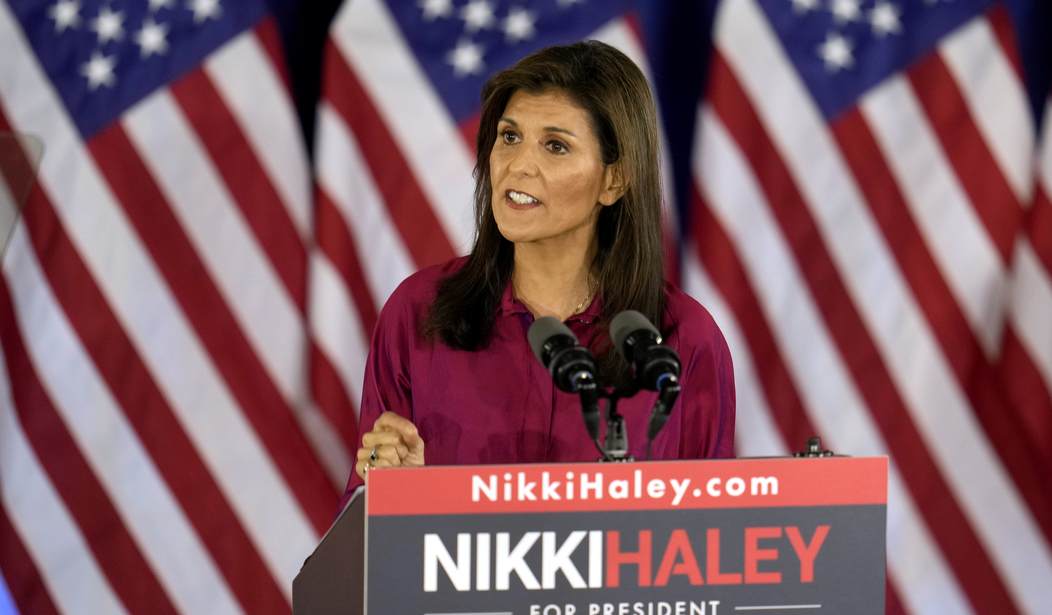Republican presidential candidate Nikki Haley (R-S.C.) is seeking Secret Service protection after facing mounting alleged threats.
“We’ve had multiple issues ... It’s not going to stop me from doing what I need to do,” Haley said in an interview with The Wall Street Journal.
This week, Haley has been the target of protestors who oppose her support for Ukraine and Israel funding. The WSJ noted that a woman tried to storm the stage at Haley’s campaign event. However, a member of the Republican’s security detail tackled her to the ground before she could reach Haley.
In December, Haley found herself in the middle of a swatting incident involving an unknown individual who called 911 and claimed to have “shot his girlfriend and threatened to harm himself while at the residence of Nikki Haley.”
On a separate occasion, a swatter called 911, claiming that Haley’s daughter was lying in a pool of blood and that the South Carolina Republican was threatening to shoot herself.
Recommended
“When you do something like this, you get threats,” Haley told reporters last week. “It’s just the reality. At the end of the day, we’re going to go out there and touch every hand; we’re going to answer every question; we’re going to make sure that we are there and doing everything that we need to.”
The Department of Homeland Security consults with Congress to determine if Haley warrants the need for Secret Service protection.
Last year, Independent presidential candidate Robert F. Kennedy Jr. was denied Secret Service protection despite family members having been assassinated.
It took 88 days— when usually it only takes 14 days— for the Secret Service to determine that RFK Jr. would not be granted protection.
RFK Jr.’s request came after an armed man impersonating a Deputy U.S. Marshal showed up at the candidate’s campaign event.
Per the Epoch Times:
Secret Service protection is usually granted within 120 days of the presidential race. Under the Trump Administration, President Joe Biden was given protection 221 days prior to the 2020 election. Barack Obama received protection in May 2007, which was the first time a candidate was given protection almost two years before an election.
A Monmouth University-Washington Post Poll states that Trump is defeating Haley in the race. He has secured 58 percent support from likely Republican primary voters, while Haley only has 32 percent support.

























